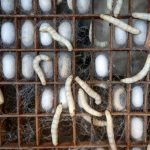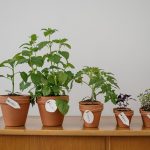Nope, cotton isn't made from soil, but it needs soil to grow! Healthy soil gives it nutrients and support for strong roots. Without soil, cotton wouldn't be healthy or able to grow. If you want to know more about how cotton grows and why soil is essential, keep exploring the info!
Table of Contents
Key Takeaways
- Cotton fibers develop from seed coat cells in cotton bolls.
- Healthy soil provides essential nutrients for cotton growth.
- Soil contributes to increased yields by supporting root systems.
- Cotton is not made from soil but grows in soil to obtain nutrients.
- Soil quality impacts cotton plant health, fiber quality, and growth.
Cotton Plant Growth in Soil
How do cotton plants thrive in soil to produce the fibers we use in everyday products?
Well, it all starts with healthy soil. Cotton plants need the right balance of nutrients, water, and sunlight to grow well. Their roots play an important role in absorbing water and essential nutrients from the soil to support their growth. Soil health is essential for the overall health of cotton plants. The quality of the soil directly impacts the plant's health, the amount of cotton it yields, and even the quality of the fibers it produces.
To guarantee successful cotton cultivation, farmers must pay close attention to preparing the soil, planting the seeds properly, and managing the soil's moisture levels. Without healthy soil, it would be challenging for cotton plants to grow and produce the fibers that are used in various everyday products. Maintaining soil health is crucial to sustaining cotton plant growth and ensuring a good harvest of high-quality cotton fibers.
Nutrients Required for Cotton Plants
Cotton plants rely on essential nutrients like nitrogen, phosphorus, and potassium to thrive and produce quality fibers. These nutrients are like the plant's vital vitamins; they need them to grow strong and healthy.
Nitrogen is extremely important for cotton plants because it helps with leaf and stem growth, making sure the plant gets big and sturdy. Phosphorus is like the plant's personal trainer, focusing on root development and helping it blossom with beautiful flowers. Then we've potassium, the plant's essential guru, regulating water intake, photosynthesis, and overall plant well-being.
Just like a balanced diet is essential for our health, balanced soil nutrition is key for cotton plants to give their best yield and quality. So, when you see a field of cotton swaying in the breeze, remember that beneath those fluffy bolls lies a world where soil and nutrients work together to create something truly amazing.
Cotton Fiber Formation Process
In the formation process of cotton fibers, tiny cells inside the seed pods of the cotton plant gradually transform into the soft, versatile material that's familiar and cherished. These fibers develop from the seed coat cells found within the seeds of the cotton boll. The main component of cotton fibers is cellulose, a complex carbohydrate. The process of fiber formation involves cell elongation, cellulose deposition, and maturation. As the cotton plant grows, genetic factors, environmental conditions, and different growth stages influence the development of these fibers.
Cellulose deposition is a critical part of the fiber formation process, where the cells elongate and deposit cellulose, giving rise to the characteristic strength and flexibility of cotton fibers. This transformation from tiny seed pod cells to the soft fibers we're familiar with takes place within the protective environment of the cotton boll. It's fascinating how these simple cells evolve into a material that plays a significant role in our daily lives.
Importance of Healthy Soil for Cotton
Good soil is like the cotton plant's VIP section, providing all the essential nutrients needed for growth. When the soil is healthy, it's like a buffet of goodness for the cotton plants, making sure they've everything to thrive.
Without good soil, it's like trying to dance without music – things just won't flow smoothly.
Soil Nutrients for Cotton
Nourishing cotton plants with essential nutrients, healthy soil plays a pivotal role in ensuring robust growth and sustainability in cotton production. Here's why soil nutrients are important for cotton:
- Essential Nutrients: Healthy soil provides necessary elements like nitrogen, phosphorus, and potassium that cotton plants need to flourish.
- Influencing Yield and Quality: Soil fertility directly impacts cotton yield, quality, and resilience against environmental challenges.
- Sustainable Practices: Proper soil management techniques are essential for long-term cotton production sustainability.
- Root Development: The structure of the soil influences root growth, nutrient uptake, and water retention important for cotton cultivation.
Soil Health Impact
Maintaining healthy soil is crucial for ensuring the quality and yield of cotton crops. Soil compaction, a common issue in agriculture, can restrict root growth and water infiltration, negatively impacting cotton plants. Implementing crop rotation, where different crops are planted in a specific order, helps break disease cycles, improves soil structure, and enhances nutrient availability for cotton. Here's a breakdown of how soil health impacts cotton cultivation:
| Soil Health Impact | Benefits | Practices |
|---|---|---|
| Soil Compaction | Restricts root growth and water intake | Avoid heavy machinery |
| Crop Rotation | Breaks disease cycles and improves soil | Rotate cotton with legumes |
| Nutrient Availability | Enhances growth and development | Incorporate cover crops |
Role of Soil in Cotton Cultivation
Alright, let's discuss the role of soil in growing cotton.
Soil composition is crucial for cotton plants to obtain the nutrients they require to produce those soft fibers we adore.
We also need to monitor soil moisture levels and regulate soil fertility to guarantee our cotton crops flourish.
Soil Composition for Cotton
Soil composition plays an important role in cotton cultivation, providing essential nutrients and influencing plant growth and yield. When it comes to cotton farming, us cotton farmers pay close attention to the soil because it can make a big difference in our harvest.
Here are some key points about soil composition for cotton:
- Nutrient Richness: Soil gives cotton plants important nutrients like nitrogen, phosphorus, and potassium to help them thrive.
- pH Levels Matter: The soil's pH level impacts how well cotton plants can access these nutrients, affecting their health.
- Moisture Balance: Getting the right amount of moisture in the soil is crucial for cotton to grow well.
- Texture Counts: The texture of the soil influences root growth and water movement, which can impact the health of cotton plants.
Understanding these soil factors helps us combat soil erosion and ensure successful cotton yields.
Soil Moisture Requirements
Ensuring the right moisture levels in the soil is essential for successful cotton cultivation. Cotton requires adequate soil moisture for ideal seed germination, root development, and overall plant growth. Too much moisture can cause waterlogging issues, harming the plants and reducing yields. On the other hand, insufficient soil moisture can lead to stunted growth and poor fiber quality. Proper soil moisture management is vital, whether through irrigation methods or relying on natural rainfall, to maximize cotton yield and fiber quality.
| Soil Moisture Level | Impact on Cotton |
|---|---|
| Excessive Moisture | Waterlogging, Yield Losses |
| Ideal Moisture | Healthy Root Development, High Yields |
| Inadequate Moisture | Stunted Growth, Poor Fiber Quality |
Soil Fertility Management
Managing soil fertility is essential for successful cotton cultivation as it directly impacts the growth and health of cotton plants. Here are four key practices for maintaining soil health in cotton fields:
- Crop Rotation: Alternating cotton with different crops helps prevent soil depletion and maintains nutrient balance.
- Cover Cropping: Planting cover crops like legumes between cotton seasons improves soil structure and adds nutrients.
- Organic Fertilization: Using natural materials like compost or manure enriches the soil without harmful chemicals.
- Sustainable Practices: Implementing sustainable soil management techniques benefits not only the crop but also the environment for long-term cotton production success.
Soils Impact on Cotton Quality
When tending to cotton crops, the importance is greatly influenced by the health of the soil it grows in. The condition of the soil directly affects the nutrients available to the cotton plants and how well their roots can develop.
If the soil is healthy, it means less need for artificial fertilizers, which can lead to better natural pest control. Additionally, when the soil has good structure and biodiversity, it can retain water more effectively and allow water to penetrate deeper, supporting better cotton growth overall.
Healthy soil also helps the cotton plants use water more efficiently and makes certain they've the necessary nutrients, ultimately resulting in higher quality cotton production. Better Cotton Farmers who manage their soil effectively often see increased yields and resistance to pests, showcasing the pivotal role that soil health plays in the quality of cotton.
Relationship Between Cotton and Soil
As we explore the connection between cotton and soil, it's evident that the health of the soil directly impacts the quality and yield of cotton crops. Here are some key points to keep in mind:
- Nutrient Provider: Soil acts as a natural source of essential nutrients for cotton plants in cotton fields. These nutrients are essential for the healthy growth of the plants and the development of high-quality cotton fibers.
- Physical Support: The soil provides the necessary physical support for cotton plants to establish strong root systems. This support is crucial for the plants to anchor themselves securely and access water and nutrients effectively.
- Impact on Yield: Healthy soil contributes to increased cotton yields by ensuring ideal growing conditions. Soil health directly influences the plant's ability to produce a plentiful harvest of cotton.
- Sustainability: Maintaining soil health is key to the sustainability of cotton farming. Practices that promote soil conservation and fertility are essential for the long-term success of cotton cultivation in cotton fields.
Soil Management in Cotton Farming
So, taking care of the soil in cotton farming is super important.
We do things like crop rotation and cover cropping to keep the soil healthy.
Using organic stuff like fertilizers and biopesticides helps too.
Soil Health Practices
Implementing sustainable soil management practices is key to enhancing soil health in cotton farming. Here are some essential practices to maintain healthy soil in cotton production:
- Crop Rotation: Changing the crops grown in a field seasonally helps prevent soil depletion and promotes biodiversity.
- Cover Cropping: Planting cover crops during the off-season helps prevent erosion, improves soil structure, and adds nutrients.
- Integrated Pest Management: Using a combination of techniques to control pests reduces the need for harmful chemicals, preserving soil health.
- Organic Fertilizers and Biopesticides: These natural alternatives help maintain soil fertility without harming the environment, promoting sustainable farming practices.
Sustainable Soil Management
To maintain healthy soil in cotton farming, incorporating sustainable soil management practices is essential. When cotton is grown, it's important to prevent soil degradation and erosion to guarantee long-term productivity. Practices like crop rotation and cover cropping help maintain soil health by diversifying plant species and reducing the risk of nutrient depletion.
Integrated pest management is also key in reducing the need for synthetic pesticides, preserving soil quality. Additionally, agroforestry systems that combine trees with cotton crops can enhance soil structure and fertility, promoting biodiversity. Implementing soil conservation techniques such as terracing and contour farming further prevent soil erosion, safeguarding the land for sustainable cotton production.
Collaboration among researchers, farmers, and policymakers is crucial for successful adoption of these sustainable soil management practices.
Sustainability Practices in Cotton Farming
In sustainable cotton farming, practices like crop rotation, cover cropping, and integrated pest management are key to maintaining soil health. Here are some important sustainability practices in cotton farming:
- Organic Fertilizers and Biopesticides: Using natural fertilizers and pesticides helps keep the soil healthy by avoiding harmful chemicals that can degrade it over time.
- Better Cotton Initiative's Soil Management Plans: This initiative focuses on enhancing soil structure and fertility through tailored plans, ensuring the land remains productive for future cotton crops.
- Training on Sustainable Soil Practices: Farmers receive education on sustainable soil practices to improve soil health indicators, ensuring the longevity of their cotton farming endeavors.
- Goal for 100% Improvement by 2030: The aim is for all Better Cotton Farmers to enhance soil health by 2030, emphasizing the commitment to sustainable farming practices for a healthier environment and better cotton production.
Soil Conservation in Cotton Production
Soil conservation in cotton production involves adopting sustainable practices like crop rotation and cover cropping to maintain the fertility of the soil. By rotating crops like cotton with others such as legumes, the soil can retain nutrients and reduce the buildup of pests and diseases specific to cotton growing. Cover cropping further protects the soil from erosion, retains moisture, and adds organic matter, enhancing its overall health. Implementing techniques like terracing and contour farming also helps prevent soil erosion, preserving the land for future cotton cultivation. Sustainable soil management in cotton farming not only benefits the environment but also the farmers by reducing the need for synthetic fertilizers and promoting natural pest control. Collaborating with researchers, farmers, and policymakers is essential for successful implementation of soil conservation practices in cotton production. Let's take a look at how these practices can make a difference:
| Benefits of Soil Conservation in Cotton Production |
|---|
| Retains soil fertility and nutrients |
| Prevents soil erosion and maintains soil health |
| Reduces reliance on synthetic fertilizers |
| Promotes natural pest control |
Frequently Asked Questions
Is Cotton Grown in Soil?
Yes, cotton is grown in soil. It needs soil for nutrients and support to grow into plants that produce cotton fibers. Important soil quality is crucial for successful cotton crops. Proper soil management is key for healthy growth.
What Is Cotton Made Of?
Cotton is made of natural fibers that grow around cotton plant seeds. These fibers, rich in cellulose, are harvested from cotton bolls. After spinning into yarn, they are woven or knitted into textiles, with quality depending on fiber characteristics.
Where Does Cotton Naturally Come From?
Cotton naturally comes from the fluffy fibers that grow around the seeds of cotton plants. It needs fertile soil, sunlight, and rainfall to thrive. Harvested fibers are processed into various products. Its source isn't soil, but the plant itself.
Is Cotton From the Ground?
Cotton comes from the ground, growing in soil, but it's not made from soil. The cotton plant absorbs nutrients and water from the soil to produce fibers. Soil supports its growth, but the final product is processed fibers.
- Why Is Red Velvet Not Red? - April 25, 2024
- How Do You Describe Velvet Fabric? - April 25, 2024
- How Strong Is Velvet? - April 25, 2024







